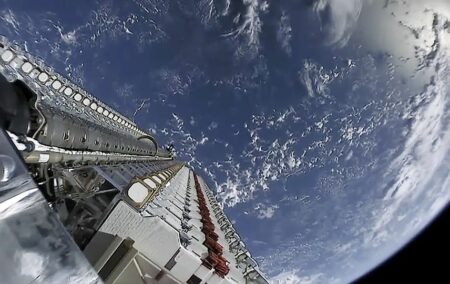One of the more absurd posts on the site formerly known as Twitter, came from Maye Musk, the mother of Elon Musk. It revealed an abysmal understanding of economics and markets on her part and was an open plea to give her billionaire son more handouts and subsidies. It also teaches us something about South Africa’s state-owned enterprises.
Maye’s son has been a heavy practitioner of crony capitalism, where political connections are used to subsidise a business at the expense of competitors and consumers — something that is also true of state-owned enterprises.
The billionaire Musk has himself received billions in handouts from governments at the local and national levels. Musk is not a practitioner of free markets but of politically manipulated markets. In 2015 the Los Angeles Times said Musk had already received $4.9 billion in government handouts and favours; the Musk gravy-train has only received multiple billions more in corporate welfare since.
That is related to what upset Mother Musk. One of the newer Musk ventures — with begging bowl in hand — has been his Starlink internet service. The US Federal Communications Commission (FCC) declined to give $900 million in further subsidies and that had the Musk family upset.
Declaring war
According to Maye not giving her son subsidies is declaring war on all that is good on the planet; she claimed her billionaire son is only making “the world a better place.” With his billions I’m sure he could do just that without taking money from other businesses and taxpayers — all of whom are much worse off financially than he is.
All economic activity either enhances wealth or destroys it. In a market system the destruction of wealth — when the value of good or services produced are below the costs to provide them — falls on the decision-maker. It’s his money at risk. Under crony capitalism the decision-maker is risking money taken from others through political means.
If an enterprise creates wealth the value of what it creates exceeds the cost to produce it; it makes the world a better place by increasing wealth. Wealth creators don’t need subsidies, only wealth destroyers do. A wealth producer not only creates enough value to pay for the goods or services offered, but to pay a profit to the entrepreneurs and investors involved. That is genuinely making “the world a better place.”
This is true of any enterprise — whether privately owned or state-owned. Politically manipulated state-owned enterprises (SOEs) tend everywhere to be wealth destroyers. Even when providing a needed service — such as electricity — they destroy more wealth than the value of the electricity they produce. If the value were greater they’d make a profit.
Troubling trend
One of the more troubling trends worldwide is the rise of today’s “conservatives” openly attacking markets and yearning for state control — not just of the private lives of citizens but of markets as well. They are moving more toward the economics of Mussolini and further away from that of Milton Friedman.
FCC Commissioner Brendan Carr, a Trump appointee, was the one who got Maye Musk out attacking Joe Biden for the FCC’s decision — a matter with which Biden had no involvement. Carr claimed the denial of the $900 million in subsidies was an example of a federal agency “engaging in regulatory harassment of Elon Musk.”
If the lack of subsidies is “harassment” then I’ve been harassed my entire life. I suspect the same is true for most my readers.
The fallacy behind this political-manipulation of markets being pushed by the anti-liberal Right is best described as “What is Seen and What is Not Seen.” French liberal economist Frédéric Bastiat in 1850 put it this way:“The entire difference between a bad and a good Economist is … a bad one relies on the visible effect while the good one takes account both of the effect one can see and of those one must foresee.”
SOEs, Maye Musk, and everyone else seeking corporate welfare always point to what is seen. In Maye’s complaint it was how her son is the world’s saviour. But they all do it in one form of another. There certainly are visible benefits but they ignore the unseen costs.
Subsidies
If X receives R500m in subsidies it will spend that money and some “benefits” will be visible. At the same time others have R500m less to spend. The subsidy came from somewhere. Businesses taxed to subsidise the favoured ones are worse off, and usually those costs exceed the benefits seen. The benefits are seen but the costs are hidden.
Each rand taken from a taxpayer is one rand less they have to spend on goods and services they value. Those providing wanted goods to the taxpayer are also worse off. The costs are diffused throughout the nation while the benefits are concentrated on generally well-off individuals with political pull.
The benefits are seen while the costs are unseen and too many politicians and members of the public, Maye Musk included, falsely assume this means their favoured hand-outs are beneficial to all; ultimately however they receive the benefits and the wider society is stuck paying the bills.
The views of the writer are not necessarily the views of the Daily Friend or the IRR
If you like what you have just read, support the Daily Friend

